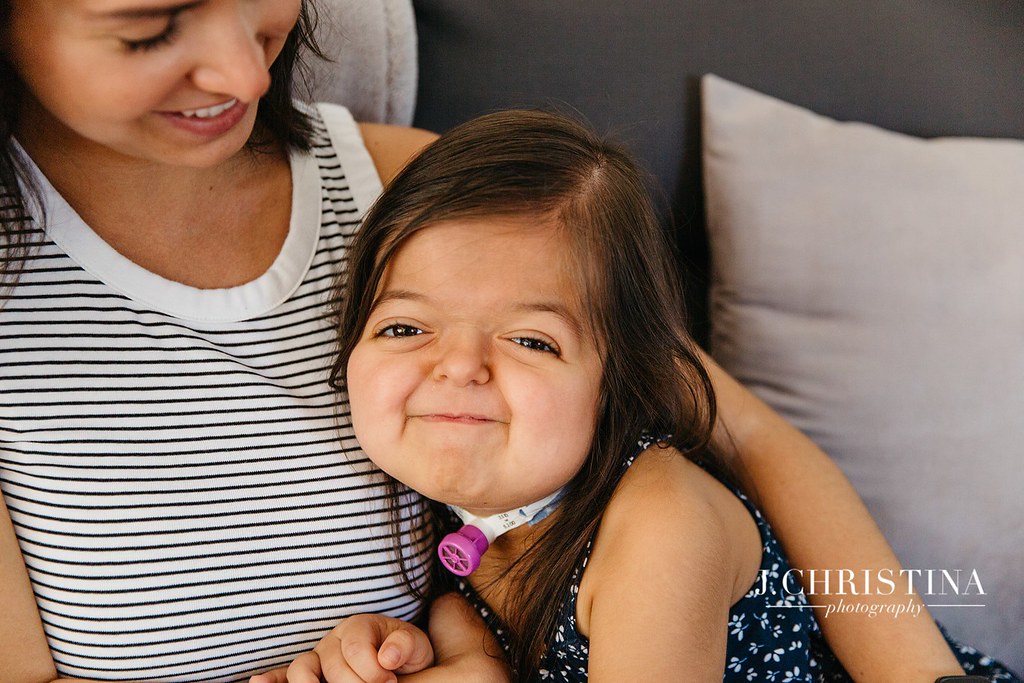Each of us face different trials in life—trials in which our faith is tested, and we are faced with the decision whether or not to believe in the faithfulness of God. Meg Apperson and her family are not strangers to this journey. Brought to the point of sacrifice—much like Abraham with Isaac—Meg had to surrender all of her hopes and dreams as well as fears for her infant daughter born with life-threatening challenges to the Lord. And in that precious moment of surrender, light burst through the darkness. Meg’s journey is more than that of a loving Mother. It is a journey to which anyone who has experienced grief or pain can relate. It’s a journey in which we see what the Psalmist meant when writing “even in darkness light dawns” (Psalm 112:4). It’s a grace to welcome Meg to the farm’s front porch today…
“They will have no fear of bad news; their hearts are steadfast, trusting in the Lord.” Psalm 112:7
I’ve been writing since I was a little girl, so blogging was not much of a stretch for me.
I’ve always loved words. Reading came easily before I turned five years old and by ten, I had filled notebook after notebook with fictional stories.
I didn’t write much, other than essays and papers in high school and college, so I became rusty and forgot my old hobby. It wasn’t until I discovered lifestyle blogs that I considered writing again.
I was a single mother at the time and barely had the freedom to eat regular meals, much less write for pleasure, but a seed had been planted in my heart.
After Cody and I married, I purchased my first domain, FourFineLives.com. I was thrilled, and for the first six months, I posted absolute drivel. I posted my silly opinions as though the world needed to hear them, recipes, our pregnancy announcement, Avery’s gender and name, and other miscellaneous frivolity.
When we received Avery’s diagnosis, I didn’t plan to share what we were facing with anyone except our immediate family.
I withheld the news for weeks before reluctantly sharing it with my friends on social media.
The information already had been gradually leaked, so I knew I needed to speak out and let everyone to know that we were fine, but we would love their prayers and support.
Because the only proof of defects came from fuzzy ultrasound images, there was much we didn’t know about Avery’s condition before she was born, and I spent about six weeks in feverish research.
Blogs chronicling a family’s journey with craniosynostosis were so rare and often so depressing that the research left me with more anxiety than comfort. And I knew that Avery’s condition was more complex than most because she had multiple fused sutures—so even fewer blogs felt relatable.
I knew syndromic craniosynostosis was accompanied by airway issues, feeding difficulties, and a lot of need for medical intervention, but that’s where the information stopped.
The ambiguity of what we were possibly facing was so overwhelming that I had little hope for anything other than a miracle.
I needed a miracle, and if I didn’t get one, I didn’t know how I would face what might come next.
The unanswered questions and feelings of helplessness were the darkest tunnel in the prenatal period.





After Avery was born, I still wasn’t sure how I felt about sharing the extent of her condition with friends.
The night of her birth, she was whisked away to the children’s hospital, and I was left to recover alone in my hospital room an hour and a half away.
Avery’s empty “going home” outfit mocked me from my hospital bag. My baby would not be going home. My arms were empty. It felt like a cruel joke to arrive at the hospital with a baby tucked safely inside my stomach and leave with nothing.
When we were reunited the next day, as I held her tiny body and severely deformed head, two roads clearly presented themselves before me: shame or pride.
The nurses shielded the other visitors in our NICU pod from Avery’s appearance, and the doctors spoke in hushed tones when they used words like “abnormal” and “defective.”
When the other parents of the infants in our room caught sight of her, they stared and then looked away, refusing to look me in the eye. Cody even asked me to consider not sharing any pictures of Avery on social media to avoid upsetting any sensitive Facebook friends and family with her jarring appearance.
Anger and indignance rose in my heart. I was overwhelmingly proud of Avery’s fighting spirit and repulsed by the thought of her feeling ashamed of herself, as I had been for most of my life.
I was incensed by the suggestion that the way Avery looked dictated the kind of life she could lead. I didn’t care if people found her hard to see. They could look away.
I knew everything about Avery’s life was going to be bold and brave; she had already shown me that in the first twenty-four hours of her life. I wouldn’t let anyone hide her because she was different. She didn’t need anyone’s approval to make her worthy. She was born worthy, as an image-bearer of God.
I posted her first picture. I wanted to tell her story. I wanted the world to really see Avery in all her humanity.
I wanted everyone to see that people with physical differences are not scary.
I wanted the world to see her power, her will to survive.
And I wanted to tell our story for the next mom who heard the words, “Your baby has craniosynostosis.”
I wanted to be there on her screen when she googled the terms that scared her to death and made her sick to her stomach so that she would know she will never be alone.
I believed God was smiling at the decision. I had no idea the extent of the story He was weaving, but I knew He wanted me to tell it, whatever it was. My following rapidly grew from friends and family to thousands of readers across the world.
I was once a reluctant advocate, but God’s purpose for Avery has been impressed on my heart so strongly that I’m compelled to share His work in our lives.
I’m compelled to share how He takes “broken” and turns it into “beautiful” — how even in the darkness, He has a plan for all our pain.
Meg Apperson is a blogger, homeschooling mother, and pastor’s kid. She and her husband, Cody, live in North Carolina with their four children. Meg is a passionate lover of words, an advocate for medically fragile children, and an aspiring minimalist.
Meg grew up having a relationship with Jesus, and she always trusted God. But it wasn’t until her daughter Avery—a miracle in so many ways—was born with a litany of life-threatening birth defects that she began to fully understand what it means to trust Jesus with everything.
Sky Full of Stars is a heartbreakingly beautiful memoir where a mother fights for her family and grapples with the weight of feeling let down by God. In the midst of deep grief, she discovers that God is both good and faithful.
You’ll learn how a mother fought for her child, her family, and even herself as she grappled with the weight of failure—of letting down everyone around her and feeling let down by God.
[ Our humble thanks to Salem Books for their partnership in today’s devotion ]











